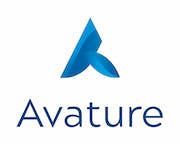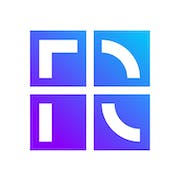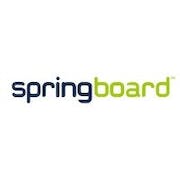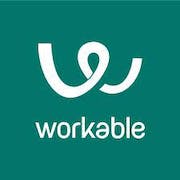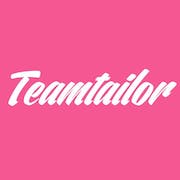Looking for the best recruitment marketing platform? Our comprehensive buyer's guide has got you covered! Discover top features and benefits to help you make the right choice. Read now and start transforming your hiring process!
Recruitment marketing platforms are a game-changer for companies of all sizes looking to attract, engage, and retain top talent today. As the war for talent rages on, employers need to stand out and provide candidates with an innovative and personalized hiring experience. That's where recruitment marketing platforms come in. These powerful tools enable companies to showcase their unique culture, values, and brand identity to attract the right people, all while streamlining their hiring process, improving candidate experience, and reducing cost per hire. With a wide range of them on the market, finding the best one for your business can be an overwhelming task, but fear not. In this comprehensive buyer's guide, we'll explore everything you need to know to make an informed decision and take your talent acquisition strategy to the next level.
What is recruitment marketing platforms?
Recruitment marketing platforms (RMPs) are online software tools that help organizations promote their employer brand, attract and engage job candidates, and streamline recruitment processes. They are a critical component of modern recruitment strategies, allowing employers to effectively compete in the war for talent by leveraging the latest marketing technology.
Some of their common use cases include:
- Employer branding: RMPs allow companies to develop and promote a compelling employer brand across multiple channels, including social media, career sites, and job boards. This helps companies stand out from the competition and attract top talent.
- Candidate sourcing: These tools enable companies to reach a wider pool of candidates by leveraging job boards, social media, and employee referrals. This allows recruiters to quickly identify and engage candidates who might not have applied through traditional channels.
- Candidate engagement: They help companies build meaningful relationships with candidates by automating personalized communications via email, text, and chat. This helps keep candidates engaged throughout the hiring process and improves the candidate experience.
- Analytics and reporting: RMPs provide valuable data and insights into recruitment processes, allowing companies to track metrics such as candidate engagement, time-to-hire, and cost-per-hire. This helps companies make data-driven decisions and continuously improve recruitment strategies.
Overall, these programs are ideal for companies that want to improve their recruitment processes and attract top talent. RMPs are particularly useful for companies that have a high volume of job openings, need to fill roles quickly, or want to build a strong employer brand. Examples of companies that commonly use them include Fortune 500 companies, startups, and medium-sized businesses across a variety of industries. 90% of customers using recruitment marketing software said they are likely to recommend it to other professionals.
What are the benefits of using a recruitment marketing tool?
These platforms consolidate various aspects of a business's recruiting efforts, including job postings, applicant tracking, and social media integration. Here are some of their benefits:
- Improved employer branding: Recruitment marketing solutions provide tools for creating and promoting an employer brand. With targeted job ads, social media integration and personalized career-site branding, candidates can easily interact with the brand and better understand the company culture.
- Simplified recruitment process: These recruitment tools provide easy-to-use tools to streamline the recruitment process and save time. Automated job posting distribution and scheduling, integrated candidate engagement tools like interview scheduling and assessment processes all work towards making recruitment seamless for businesses.
- Enhanced candidate experience: Recruitment marketing platforms offer features that enhance the candidate experience. From responsive career sites to chatbots and communication tools, candidates can smoothly navigate through the recruitment process and have their queries/questions answered quickly and easily.
- Better quality of hire: By using data and analytics features to track candidate engagement, recruitment marketing software help businesses determine and modify the recruitment activities that are successful and which ones are not. These insights are essential to improving quality-of-hire and reducing time-to-fill for open job roles.
Businesses who use them are better placed to attract and retain qualified candidates. By strategically leveraging these applications for hiring, businesses gain the upper hand in the process and could save time, hassle, and resources while ensuring the best candidates get hired.
10 key features of recruitment marketing platforms
RMPs offer a variety of features that can help streamline the recruiting process and attract top talent. Here are 10 common features that can be found in most of them:
- Job posting and advertising: Recruitment marketing platforms provide businesses with a system to create and advertise job vacancies in a way that is visually appealing and attractive to potential candidates.
2. Candidate relationship management: They provide tools for businesses to manage the candidate's interaction and communication with the potential candidates.
3. Social network integration: Programs that provide social network integration allow businesses to share their job postings on social media, thereby increasing the reach and visibility of their openings.
4. Resume management: With the resume management feature, businesses can easily scan and track candidate resumes, creating a database of potential candidates for future hires.
5. Applicant tracking system: Recruitment marketing platforms offer an applicant tracking system that ensures businesses keep track of the recruitment process at all stages, from sourcing candidates to the final selection.
6. Candidate analytics: Solutions that offer candidate analytics help businesses collect data about candidates that have applied for their jobs, such as demographics, qualifications, and skills.
7. Employee referral programs: These programs enable businesses to incentivize their current employees to refer potential candidates for open positions.
8. Career site management: Recruitment marketing software allows businesses to easily create and manage a customized career site that is attractive to potential candidates.
9. Personalization: Personalization of job postings with the use of artificial intelligence can increase the visibility and attention of the position to candidate requirements and qualifications.
10. Marketing campaign management: Recruitment marketing platforms allow businesses to run marketing campaigns, keyword campaigns, and events aimed to increase the visibility of their brand and attract more candidates suitable for specific job roles.
Key considerations when adopting recruitment marketing solutions
Recruitment marketing platforms have become an essential tool for businesses of all sizes and industries. They provide a centralized hub for managing recruitment related activities such as job postings, resume screening, candidate communication, and interviews. Choosing the right one for your business can be a challenging task, as the market is flooded with numerous options that offer unique features and capabilities. To help you make a well-informed decision, here are some key factors to consider when purchasing:
1. Scalability: It is important to choose a platform that can scale with your business and accommodate your growing recruitment needs. Consider the number of job postings per month, users, and candidates that the platform can handle.
2. Integration: The solution should integrate seamlessly with your existing HR systems such as your applicant tracking system and HR automation tools. This ensures that all your recruitment processes are streamlined and efficient.
3. User interface and experience: Its user interface and experience should be intuitive and easy to navigate. This makes it easier for recruiters to manage and track job postings and candidate applications, without spending too much time on training.
4. Customization: Choose one that can be customized to meet your specific recruitment needs, including branding, job descriptions, application forms, and communication templates.
5. Analytics and reporting: The software should provide robust analytics and reporting features that allow you to track the effectiveness of your recruitment campaigns and measure key performance metrics.
6. Compliance: Compliance with data protection and privacy regulations is critical when choosing this marketing platform. Ensure that it has all the necessary security features to protect candidate data.
7. Customer support: The level of customer support provided by the vendor is also a crucial factor to consider. Select an application with a dedicated customer support team that can assist you with any technical issues or concerns.
Industry trends for recruitment marketing programs
Recruitment marketing platforms are essential tools for HR professionals and recruiters. With the rapid expansion of technology and an increasingly competitive job market, these programs help companies stand out in the recruitment process. A study by Spiceworks noted that recruitment marketing is poised for rapid growth in the next few years, according to 90% of HR professionals.
One major trend in recruitment marketing platforms is the increased use of artificial intelligence (AI) and machine learning. AI and machine learning algorithms help recruiters automate many of the time-consuming tasks associated with sourcing candidates, screening resumes, and scheduling interviews. This technology can also analyze data to identify patterns, allowing recruiters to make better-informed decisions when it comes to hiring.
Another trend is the growing importance of mobile-friendly and user-friendly platforms. With more and more job seekers using mobile devices to search for job opportunities, recruitment marketing tools that offer mobile-friendly interfaces and easy-to-use navigation are becoming increasingly popular. They often feature intuitive user interfaces, streamlined application processes, and personalized job recommendations.
Social media integration is also becoming a key feature. Recruiters are increasingly turning to social media sites like LinkedIn and Twitter to source and engage with potential candidates. Platforms that integrate with social media allow recruiters to post job openings, share articles, and connect with potential candidates more easily.
Finally, data analytics and reporting are becoming more important features of recruitment marketing interfaces. These tools help recruiters track and analyze key metrics like candidate sourcing, application completion rates, and time-to-hire. This allows companies to optimize their recruitment strategies, target candidates more effectively, and make more informed hiring decisions.
Conclusion
In conclusion, selecting the right recruitment marketing platform is crucial for modern businesses aiming to attract top talent efficiently and effectively. As you navigate the plethora of options available, consider your organization's unique needs, budget constraints, and long-term recruitment goals. Investing time in thorough research, seeking out user reviews, and taking advantage of free trials or demos can provide valuable insights into each platform's strengths and weaknesses. By making an informed decision, you can enhance your recruitment processes, improve candidate experiences, and ultimately build a stronger, more dynamic workforce. Remember, the right solution is not just a tool but a strategic partner in your talent acquisition journey.

